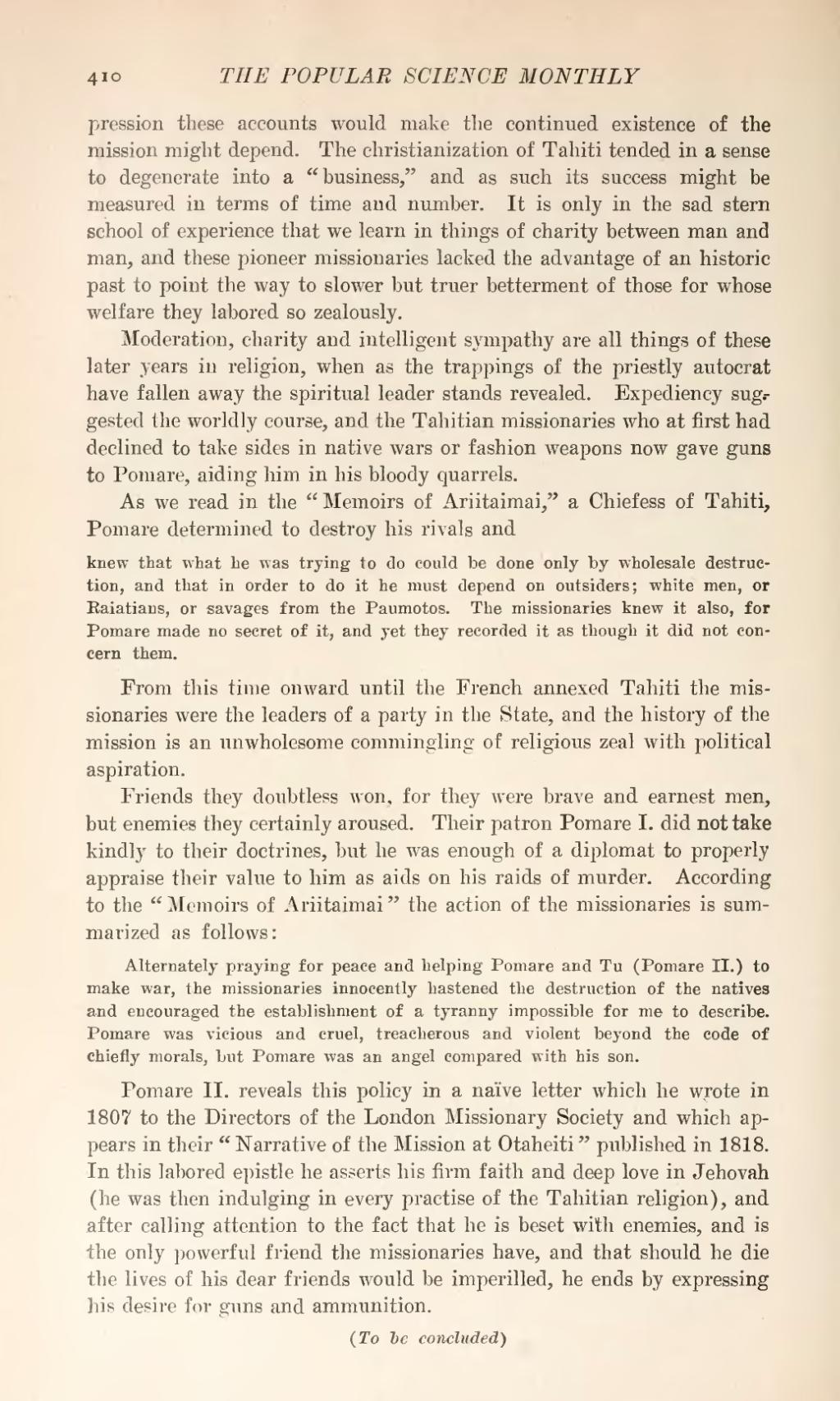pression these accounts would make the continued existence of the mission might depend. The christianization of Tahiti tended in a sense to degenerate into a "business," and as such its success might be measured in terms of time and number. It is only in the sad stern school of experience that we learn in things of charity between man and man, and these pioneer missionaries lacked the advantage of an historic past to point the way to slower but truer betterment of those for whose welfare they labored so zealously.
Moderation, charity and intelligent sympathy are all things of these later years in religion, when as the trappings of the priestly autocrat have fallen away the spiritual leader stands revealed. Expediency suggested the worldly course, and the Tahitian missionaries who at first had declined to take sides in native wars or fashion weapons now gave guns to Pomare, aiding him in his bloody quarrels.
As we read in the "Memoirs of Ariitaimai" a Chiefess of Tahiti, Pomare determined to destroy his rivals and
From this time onward until the French annexed Tahiti the missionaries were the leaders of a party in the State, and the history of the mission is an unwholesome commingling of religious zeal with political aspiration.
Friends they doubtless won, for they were brave and earnest men, but enemies they certainly aroused. Their patron Pomare I. did not take kindly to their doctrines, but he was enough of a diplomat to properly appraise their value to him as aids on his raids of murder. According to the "Memoirs of Ariitaimai" the action of the missionaries is summarized as follows:
Pomare II. reveals this policy in a naïve letter which he wrote in 1807 to the Directors of the London Missionary Society and which appears in their "Narrative of the Mission at Otaheiti" published in 1818. In this labored epistle he asserts his firm faith and deep love in Jehovah (he was then indulging in every practise of the Tahitian religion), and after calling attention to the fact that he is beset with enemies, and is the only powerful friend the missionaries have, and that should he die the lives of his dear friends would be imperilled, he ends by expressing his desire for guns and ammunition.
(To he concluded)
